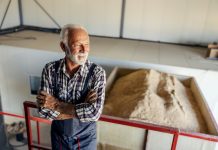
In a recent international study, researchers found genetic evidence supporting a causal effect of smoking and obesity on increasing susceptibility to severe COVID-19 and sepsis.
They found that both smoking and higher body mass index (BMI, a measure of obesity) increases the risk of severe COVID-19.
The same was also true for the risk of developing sepsis, which is a dangerous inflammatory response to infection, experienced by many patients with severe COVID-19.
Confirming the causal connection also highlights that stopping smoking and losing weight can be effective interventions for reducing the risk of developing severe COVID-19 and sepsis.
The study is published in Circulation. One author is Dr. Dipender Gill from St George’s, University of London, and Imperial College London.
In the study, the team used separate datasets of 3,199 people with severe COVID-19 and 10,154 people with sepsis.
Using genetic proxies for BMI and smoking, they were able to assess whether the presence of these genetic signposts in patients was related to an increased likelihood of severe COVID-19 or sepsis.
A typical observational study would examine the association of a risk factor, such as smoking or obesity, on various outcomes, such as mortality or disease risk.
In contrast, this research looked at differences in DNA that are associated with smoking and obesity—known as genetic variants.
By analyzing the association of these genetic variants with severe COVID-19, other confounding factors that could also play a role in affecting disease risk, for example, relating to lifestyle or environment, could be better ruled out.
With such interference reduced, the results represent evidence for the causal effects of smoking and obesity on susceptibility to severe COVID-19.
The team also describes that there are various mechanisms by which smoking and obesity may elevate the risk of suffering from severe COVID-19 and sepsis, including inflammation and immune dysregulation.
The work supports that something can be done to reduce the risk of severe COVID-19, and in particular that losing excess weight and stopping smoking can make a difference.
Copyright © 2020 Knowridge Science Report. All rights reserved.



